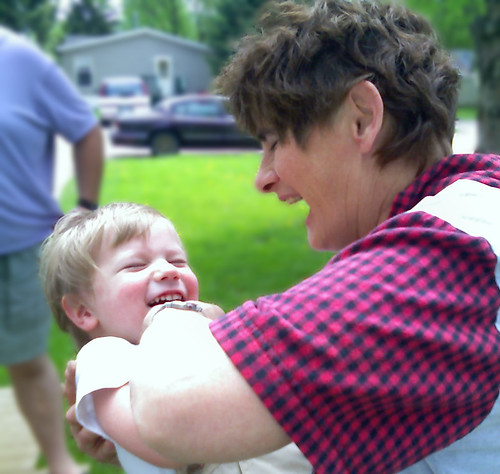
Having kids is a humongous responsibility, as every parent knows. As a mother, you juggle the roles of nurse, day-care provider, maid, taxi-driver and even psychologist on a daily basis. You may not realize it, but the decisions that you make and the discussions that you have with your child every day are peppered with child psychology.
1.Reading the Signs
Every mother quickly learns the signals that her baby shows. According to Paul C. Holinger, working at Rush-Presbyterian-St. Luke's Medical Center as a professor of psychiatry, there are nine innate signals that babies use to communicate their feelings. Every time you head off a tan-trum, make your baby giggle or calm your child's fears before they set in, simply because you recognize his or her signals, you are using child psychology in your role as a mom.2.Making Time for Play
Did you know that each time you play with your baby or toddler, you're helping to develop inter-ests that will last a lifetime? Ask any parent and they will tell you that babies are sponges, soak-ing up everything around them. Even when you think that you are merely playing with your child and enjoying your time together, you could be teaching her to sort, count, build, invent or create. According to child development professionals, children between the ages of six and 36 months are developing their fine motor skills; by playing with your child, you are not only helping to enrich their minds, but you are helping them perfect their physical abilities as well.3.Establishing a Schedule
Do you have a set schedule or routine that you follow on a daily basis? You may think that this is merely a convenience for you but, in reality, it is doing wonders for your child's emotional state. According to child care experts, children who follow routine develop a trusting relationship with their care providers, have feelings of security and are more emotionally consistent. If you haven't established a routine for your child, give it a try. You'll experience fewer tantrums, less anxiety and witness your child's happiness blossom.To develop a routine for your child, look at your daily schedule. Your little one should have a set bed time, eat at the same times every day, have play times and other daily routines. Once your child has a schedule, he or she will develop into a more confident, happy and secure child, and that will lead to a happier you.
4.If/Then Patterns
Have you ever noticed that your children are more compliant when you give them options? You may tell your child that he has to brush his teeth but can pick out his own toothbrush. You might tell your daughter that you will read a story but then she has to go to bed. You may even give your son choices like "if I let you...then you have to...". These if/then patterns all have roots in child psychology. Providing your child with choices is the key component to the democratic parenting style. Studies have shown that children raised in this manner tend to become more mature, better able to make decisions for themselves and more responsible overall.5.Articulating Feelings
Talking about feelings goes a long way towards helping your child become emotionally ma-ture. Each time you tell your child what he has done to make you happy or what she has done to make you angry, you are helping him or her mature. Whether you're happy or frustrated, turning your emotions into a lesson will help you teach your child how to behave. For example, if your son behaved well in the restaurant, tell him so and tell him why it made you happy. If your daughter sprinted off in the middle of Walmart, tell her that you're angry and why. Give your child options when he misbehaves. For example, tell your son "I'm angry that you chose to mis-behave at Grandma's house; a better choice would have been to pet the dog nicely instead of pulling his ears."You don't have to have attended one of the best psychology schools to under-stand that being a mom involves a heaping dose of child psychology. There's little doubt that you act as part mom, part shrink every day. If you would like to use a little bit more psychology in your parenting, there is a wealth of information online and in books; see what you can find! Chances are you're practicing child psychology without even knowing it.
Author Karen Boyarsky is an avid blogger. You can follow her on Twitter @Boyarsky_kareni.

